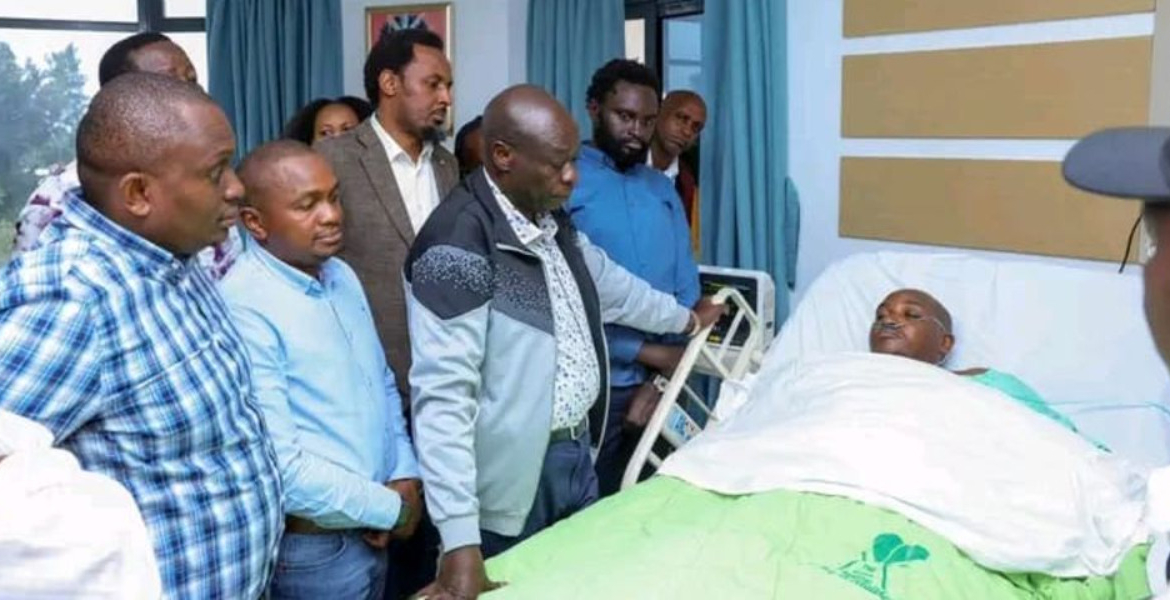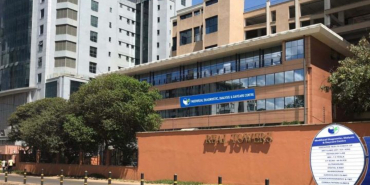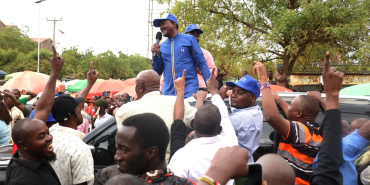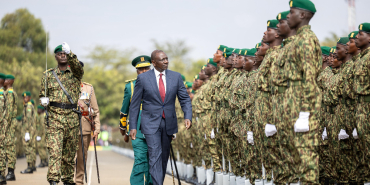Gachagua Alleges Juja MP Koimburi Was Tortured by Professionals

Juja Member of Parliament George Koimburi's recent abduction and subsequent discovery in Kiambu County have ignited a firestorm of controversy, with critics alleging a politically motivated crackdown against dissenters within President William Ruto's administration.
The incident has prompted sharp reactions, particularly from allies of former Deputy President Rigathi Gachagua, who claim the abduction is indicative of a broader pattern of intimidation targeting those critical of the current government.
Koimburi's ordeal began during a church service in Mugutha, Juja, where he was reportedly seized by unidentified individuals.
The abduction sparked immediate concerns, amplified by Gachagua's claims that Koimburi had been subjected to severe torture. Speaking to journalists at Karen Hospital, Gachagua detailed the alleged extent of Koimburi's injuries, stating that the MP had been brutally beaten and chemically incapacitated, rendering him unable to speak.
"He was beaten badly and tortured. He is unable to speak but was able to write. Doctors have confirmed that Koimburi was subjected to torture and sustained serious soft tissue injuries, which they say appear to have been inflicted by professionals. A chemical was administered through inhalation, and it has affected his vocal cords," Gachagua asserted, highlighting the severity of the alleged abuse.
Gachagua further claimed that Koimburi had narrowly avoided an earlier arrest attempt, recounting how the MP had evaded Directorate of Criminal Investigations (DCI) officers on a motorbike. The subsequent abduction during the church service, witnessed by individuals who allegedly saw assailants attempting to harm Koimburi's wife, has intensified concerns about the safety and security of government critics. Koimburi's whereabouts remained unknown until he was discovered unconscious in Githunguri Constituency, further fueling anxieties over the potential targeting of individuals perceived as opposition voices.
In response to the allegations, Police Spokesman Michael Muchiri vehemently denied any government involvement in Koimburi's abduction. Muchiri dismissed claims of state forces' involvement, asserting that law enforcement had no reason to engage in such actions and that formal legal channels would have been followed if the MP were wanted for any offences.
"We have evaluated the whole situation since Friday when Mr. Koimburi claimed he was arrested by our officers and, subsequently, on Sunday when he claimed again that he had been arrested. In all the situations, Mr. Koimburi is trying to whip up emotions among his supporters because of his imminent arrest over a land fraud case and the ongoing case where he is alleged to have faked academic certificates," Muchiri stated, suggesting that Koimburi was attempting to garner sympathy and support due to pending legal issues.
Muchiri's remarks reflect a broader narrative advanced by Kenya Kwanza leaders, who have dismissed concerns about political intimidation as politically motivated rhetoric. They maintain that security agencies operate autonomously and that the National Police Service, under the command of Inspector-General Douglas Kanja, is not being used to silence political opponents.
Despite official denials, opposition leaders and political analysts have raised alarms about what they describe as a disturbing pattern of intimidation targeting figures critical of the Kenya Kwanza administration. Former Public Service Cabinet Secretary Justin Muturi has asserted that Koimburi's abduction exemplifies an emerging trend of state-sponsored crackdowns, criticising the government's increasing intolerance of criticism.
"It is indeed true that the government is increasingly becoming intolerant of criticism. Koimburi’s abduction and torture is the clearest proof. I condemn it in the strongest terms possible," Muturi said, condemning the act as a blatant violation of constitutional rights and international human rights conventions to which Kenya is a signatory.
Muturi also criticises President Ruto, recalling his assurances that abductions had ceased under his leadership, calling for accountability for the alleged violation of Koimburi's rights. The concerns raised by Muturi and others stem from a series of events following the anti-government protests in June 2024, which were triggered by the controversial Finance Bill, 2024. These protests, which led to the dissolution of Ruto's Cabinet and the rejection of the Finance Bill, prompted a government response that critics have characterised as heavy-handed.
Allegations have surfaced that key protest organisers and opposition figures have been targeted through state agencies, facing investigations by entities such as the Directorate of Criminal Investigations (DCI), the Kenya Revenue Authority (KRA), and the Ethics and Anti-Corruption Commission (EACC). Adding to the controversy, Muturi has made startling allegations earlier this year, linking the National Intelligence Service (NIS) to state-sponsored abductions. He claims that his own son, Leslie Muturi, was abducted in Nairobi on June 22, 2024, and was only released after a direct intervention by President Ruto. These allegations have intensified scrutiny of the government's handling of dissent and the alleged use of state resources to suppress opposition voices.
Compiling statistical data on abductions and politically linked crackdowns has revealed a concerning trend. Amnesty International's recent report, "The State of World's Human Rights," noted that at least 60 protesters were killed and 600 arrested during the anti-Finance Bill protests, underscoring the government's response to public dissent.
Additionally, the Kenya National Commission on Human Rights reported that 82 cases of abductions occurred in 2024 alone, with only 29 successfully resolved. The Independent Police Oversight Authority (IPOA) presented findings to Parliament indicating that at least 19 people were forcibly taken during the June 2024 protests, highlighting the extent of alleged human rights violations.
A State of National Security report tabled by President Ruto in September outlined an alarming 44 percent increase in kidnappings and abductions between September 2023 and August 2024. While the report attributed these incidents to criminal elements, concerns persist that political motives are at play, raising questions about the true nature and causes of the rising abductions.
As allegations of political persecution mount, Kenya Kwanza leaders have countered these claims by arguing that some individuals are exploiting the situation to evade legal scrutiny. Senate Majority Leader Aaron Cheruiyot contend that political figures with criminal cases have sought refuge behind allegations of state intimidation, using claims of persecution to shield themselves from accountability.
The debate over political intimidation is further complicated by historical context. President Ruto himself previously condemned extrajudicial killings during former President Uhuru Kenyatta’s tenure, citing grisly incidents such as the discovery of bodies in Yala and Garissa. During a January 2023 interview, Ruto described how police stations had been turned into execution sites, leading to the dismissal of former DCI chief George Kinoti.
“There will be no extrajudicial killings in Kenya under my administration. I have agreed with (police) IG and other police bosses that the police will operate within the law. As an administration, we will work with all institutions—Ipoa has our support,” Ruto said, emphasising his commitment to upholding the rule of law and preventing extrajudicial killings under his administration.








Add new comment